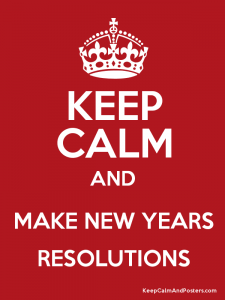Got your own career conundrum you’d like advice on?
Then sign up for the WCA peer mentoring program. It’s free to members!
It’s all about peers who care helping their fellow WCA members.
How Do I Keep My New Year Resolutions?
Compiled and edited by Julie Tereshchuk
Dear Mentors,
How do I keep my New Year’s resolutions? Should I be moderating my expectations for success or using some other way to kickstart my new year? Also, I’m curious, what kind of resolutions do you set?
Yours,
New Resolver
Dear New Resolver,
I know that a lot of people have a hard time achieving goals they’ve set for themselves. In order to make continual progress on your significant results (like New Year’s Resolutions), try incorporating these three techniques:
Keep a List
Lists are important! You can’t remember everything so you need to keep important things out of your head. In addition to your to-do list, have a “Project” list, containing your big-picture objectives. A list that would be useful if your boss or your business partner came to you and said, “What are you working on?” This is a supplement to a list for the specific action steps, such as those outlined below. It’s important to keep your big picture goals visible.
Be Specific
If your New Year’s resolutions are written in broad terms, such as, “Lose weight,” “Get healthier,” or “Grow the company,” you’ve set yourself up to fail. Because how do you know when you’ve achieved those things? For achieving goals, first you have to turn them into something that is measurable and actionable, with a specific beginning and end. So “Grow the company” might become “Add two new salespeople by third quarter.” Then you must ask yourself, “What’s the very first thing I need to do to move that project forward?”
Specific action steps might be: “Review the budget to allocate the funds,” or “Request meeting with Sales VP to discuss resource allocation.” The idea is that if you had five minutes, and wanted to move that project forward, you’d know exactly what you’d need to do. If you don’t have a specific action identified, that task is less likely to get done, and as a result, that project is less likely to move forward.
Control Your Attention
How much of your day is spent being reactive? If you often feel like the day flew by but you didn’t make any real progress on your plans, you might be allowing too many distractions to steal your attention. If you’re always distracted, you’ll get used to being always distracted, and you’ll find yourself bored in the “quiet times.” And as a result, you’ll unintentionally seek out the distraction!
Ensure that you have times in your day when you can support your focus. Put your devices on Do Not Disturb, close your email, and spend time working on the things that are important to you – find your flow!
Yours,
- In Memoriam: Pam Baggett-Wallis - February 5, 2024
- Anne Lasseigne Tiedt, APR - January 6, 2024
- Cindy Friedman - December 6, 2023

